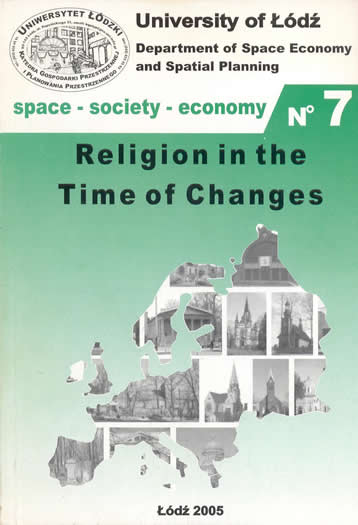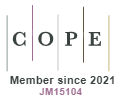Religion and populism – some remarks on post-socialist politics
DOI:
https://doi.org/10.18778/1733-3180.07.22Abstrakt
Jednym ze zjawisk, ciągle obecnych, w transformującej się post-komunistycznej Europie jest mobilizacja polityczna przez populizm. Wyrażający się w formie organicznego nacjonalizmu i/lub politycznej demagogii, populizm ma zniknąć wraz z pojawieniem się gospodarki rynkowej i zachodniej demokracji. Artykuł ma udowodnić, że tak się dzieje. Populizm pozostanie istotną siłą polityczną w Europie Środkowo-Wschodniej, ponieważ niektóre czynniki wpływające na jego pojawianie się są wciąż żywe. Celem artykułu nie jest jednak wszechstronna analiza tego fenomenu, lecz skupienie się na powiązaniach populizmu z religią. Główna teza zakłada, że wybrane aspekty strukturalne, ideologiczne i narracyjne religii nakładają się z elementami retoryki populistycznej. Skupiając się na przykładzie Słowacji i częściowo Polski autor stara się udowodnić, iż jest to rezultat ważnej ciągłości społecznej reprodukcji religii i populizmu. Jest to skutkiem specyficznego przeplatania się religii i chłopskiego rodowodu narodów Europy Wschodniej oraz komunistycznej modernizacji i tego jak wpływa ona na region dzisiaj. Do sukcesu populizmu przyczynia się także brak poczucia bezpieczeństwa i stabilności. Zawsze jednak, na prawie każdym etapie transformacji, populizm mobilizuje i jest mobilizowany przez wybrane elementy religii.
Pobrania
Bibliografia
Vladimír Bakoš, 1999. Question of the Nation in Slovak Thought. Bratislava: Veda.
Google Scholar
Juraj Buzalka, 2003. ‘Is rural populism on the decline? Continuities and Changes in Twentieth Century Central Europe – The case of Slovakia’. Brighton: University of Sussex, SEI Working Paper No 73. http://www.sussex.ac.uk/sei/documents/wp73.pdf
Google Scholar
Juraj Buzalka and Tomáš Strážay, 2002. ‘Does Political Culture Matter? The ”Westernization” of Slovakia after the year 1989’, Slovak Foreign Policy Affairs, Vol. I, No. IV.
Google Scholar
Michał Buchowski, 2003. ‘Coming to Terms with Capitalism: An Example of a Rural Community in Poland’, in Dialectical Anthropology 27: 47-68, 2003.
Google Scholar
DOI: https://doi.org/10.1023/A:1025471212692
Gavin Kitching, 1989. Development and Underdevelopment in Historical Perspective. Populism, Nationalism and Industrialization. London and New York: Routledge.
Google Scholar
Donald MacRae, 1969. ‘Populism as an Ideology’ in Ghita Ionescu and Ernest Gellner (eds), Populism. Its Meanings and National Characteristics, London: Weidenfeld and Nicholson.
Google Scholar
David Mitrany, 1951. Marx Against the Peasant: a Study in Social Dogmatism, London: Weidenfeld.
Google Scholar
Ghita Ionescu and Ernest Gellner (eds), Populism. Its Meanings and National Characteristics, London: Weidenfeld and Nicholson.
Google Scholar
Ghita Ionescu, 1969. ‘Eastern Europe’, in, Ghita Ionescu and Ernest Gellner (eds), Populism. Its Meanings and National Characteristics, London: Weidenfeld and Nicholson.
Google Scholar
Jon P. Mitchell, 2002. Ambivalent Europeans. Ritual, Memory and the Public Sphere in Malta, London and New York: Routledge.
Google Scholar
Jeff Pratt, 2003. Class, Nation and Identity: the Anthropology of Political Movements. London: Pluto Press.
Google Scholar
Angus Stewart, 1969. ‘The Social Roots’. in, Ghita Ionescu and Ernest Gellner, eds, Populism, Its Meaning and National Characteristics, London: Weidenfeld and Nicholson
Google Scholar
Stavrakakis Yannis, 2002. ‘Religion and Populism: Reflections on the “politicised” discourse of the Greek Church.’ The Hellenic Observatory, European Institute, London School of Economics and Political Science, Discussion Paper No.7. http://www.lse.ac.uk/collections/hellenicObservatory/pdf/StavrakakisDiscussionPaper.pdf
Google Scholar
Alex Szczerbiak, 2002. ‘Poland’s Unexpected Political Earthquake: The September 2001 Parliamentary Election’ in, Journal of Communist Studies and Transition Politics, vol.18, No. 3, pp. 41-76.
Google Scholar
DOI: https://doi.org/10.1080/714003608
Pobrania
Opublikowane
Jak cytować
Numer
Dział
Licencja

Praca jest udostępniana na licencji Creative Commons Attribution-NonCommercial-NoDerivatives 3.0 Unported License.









